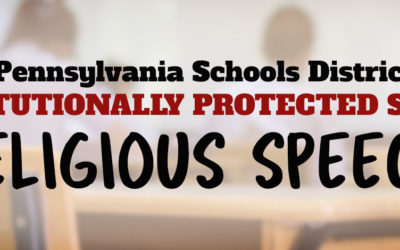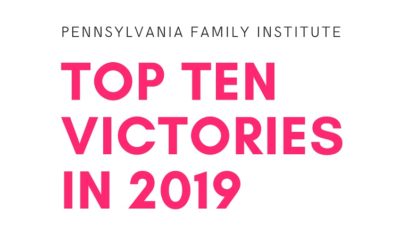Issue
Standards for Explicit Sexual Content in Schools
KEY POINTS
- School Boards are legally permitted to create policy setting standards for preventing age-inappropriate sexually explicit content in their curriculum and library.
- The standard ought not be: “As long as this book doesn’t land us in jail for giving it to a minor, the sexually explicit content is welcome in our curriculum or the school library.”
- Written policy protects students, parents, employees, and the school
and ensures better educational content will fill the finite space in curriculum and in libraries. - Schools should prioritize material that provides rich educational value over material that may provide similar value but also has age-inappropriate sexually explicit content.
- Age-Appropriate policies are not directed at viewpoint and are not banning the book from student possession. They are exercising the schools prerogative to determine what to include in its own library and curriculum.
Standards for Sexually Explicit Content in Schools
Schools must engage in line-drawing for age appropriateness of sexually explicit content in their library and curriculum. Criminal laws are one required line prohibiting schools from giving materials to minors in curriculum or library that a court deems pornographic or obscene. But what about sexually explicit content that does not rise to the extremely high bar of criminal law?
School boards are legally permitted to articulate standards that go beyond “would we land in jail for giving this book to a minor?” to prevent other age-inappropriate sexually explicit content in their curriculum and school library. Unfortunately, many schools have no policy standards for sexually explicit material beyond criminal law.
Schools with written age-appropriate standards for sexually explicit materials that differ for elementary, middle, and high schools protect students and ensures better educational content will fill the finite space in curriculum and in libraries.
But such written policies also protect the school’s staff and district from costly litigation. Even without written policy, a school librarian, principal, or school board is permitted to remove a particular title they deem age-inappropriate sexually explicit material. But with written policy standards, the school is less susceptible to baseless allegations that the title was removed for an impermissible viewpoint discriminatory reason.
School employees still have wide discretion to select and purchase books that comport with the age-appropriate standards in written policy set by the school board, and from that universe of materials, parents then have ultimate authority to make additional age-appropriate determinations for their own child and should have authority to restrict certain titles for their own child.
Individuals who desire to see sexually explicit materials in the hands of minors sometimes argue that such policies are “book bans.” Attempts at labeling common-sense school standards as “book bans” have been rejected by courts. See, C.K.-W. v. Wentzville R-IV Sch. Dist., 619 F.Supp. 3d 906, 909-910 (E.D. Mo. 2022) (“A school district does not ‘ban’ a book when, ‘through its authorized school board,’ it ‘decides not to continue possessing [a] book on its own library shelves.’”) Citing ACLU of Fla., Inc. v. Miami-Dade Cnty. Sch. Bd., 557 F.3d 1177, 1218 (11th Cir. 2009).
A parent, for example, who wants to buy sexually explicit books for their own child to read are not prevented from doing so by such school policies. School policies setting forth its own age-appropriate standards for sexually explicit content in its own curriculum and school library do not even prohibit a student from bringing their own book to school or from reading it in an appropriate time, such as study hall. But school districts do not have to put such explicit books in their own curriculum or in the school library, and such a decision by the school is not a ban on books.
Such policies treat inappropriate sexually explicit content the same regardless of whether the sexually explicit depictions or descriptions happen to be between straight, gay, or even a lone person. As such the argument made by those who desire to see sexually explicit materials in the hands of minors, that these policies are directed at LGBT people, is false.
Too many schools lack baseline standards regarding sexually explicit content in school libraries. Schools ought to spend the finite time in the day on academic excellence, and sexually explicit content detracts from that. Explicit sexual depictions and descriptions may sell, but refusal to purchase it is no ban. Districts can decide not to buy and stock sexually explicit content. If you are a school board member who desires to implement such a policy, we are glad to assist you.

Related Articles
Educational Resources for Parents
Educational Options for Parents webinar: Private School resources: Association of Christian Schools International (ACSI) – Find a school.Association of Classical Christian Schools – Find a schoolKeystone Christian Education Association (KCEA) Homeschooling...
COVID-19, Churches, Schools – See PFI’s latest (and upcoming) webinars
For the full webinar library, visit pafamily.org/webinars Latest webinar: SCOTUS Church Ruling, and how Governors' Orders Impact Churches and Ministries Next webinar: Wednesday, August 5th @ 7pm - Educational Options for Parents: Learn more about Christian schools and...
Parents: Seize this Opportunity to Choose Your Children’s Education
By: Emily Kreps As a mom here in Pennsylvania, I understand the stress that many parents are feeling and the questions we're wondering as we approach this school year. Will Governor Wolf close the schools before they even open, or one month into opening? How long will...
Online Educational and Entertainment Resources for Families
Within the past week, in a somewhat surreal turn of events, thousands of families across PA have found themselves temporary homeschoolers. Whether you’re overwhelmed at this drastic change, stressed about keeping up, or scared about the uncertainty, we at the...
Over 50 Pennsylvania Schools Districts Violate Constitutionally Protected Student Religious Speech
Independence Law Center calls for districts to remedy policy violations. (HARRISBURG, PA - January 22, 2020) Today, the Independence Law Center notified over 50 Pennsylvania school districts of their unconstitutional policies that target religious speech and are now...
PFI: Top Ten Victories from 2019
These victories are only possible by God's grace and because of the financial partnership with Pennsylvania Family Institute (PFI) by individuals and families across the Commonwealth. To partner financially with PFI heading into the new year, please go to...
Opinion: PA Family Institute’s work is vital to our future
By Caleb Steindel We have arrived at a crucial point in our country’s history. Our faith, family, and freedom based values are under attack, and as Christians in a secular society, we have a responsibility to fight for them. The good news is that we’ve undoubtedly...
Pregnant 17-Year-Old Changed By A Heartbeat
Focus on the Family shares a story about Lisa, who at age 17 faced an unexpected pregnancy and recounts how hearing the heartbeat of her unborn child made all the difference: [Lisa] scheduled an abortion. Actually, she made three appointments. But each time, she never...




